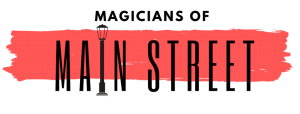A new book, the first-ever full-length history of chambers of commerce in the United States, describes how voluntary groups of business people, even before the American Revolution, changed not only their local economies but often their society. The Magicians of Main Street indicates, in considerable detail, how chambers of commerce affected the nation’s finance and currency, public health, transportation, public works, local government, education, and even cultural life. The traces of these organizations’ activities remain with us in countless ways, from Washington’s Cherry Blossom Festival to New York City’s subway to Chicago’s Board of Trade to the gaming industry of Las Vegas and the stars on the Hollywood Walk of Fame.
The author, Chris Mead, argues that these chambers have grown out of the natural tendency of Americans to form associations. As the political commentator Michael Barone has pointed out:
“Alexis de Tocqueville in his classic Democracy in America expressed wonderment at the proliferation of voluntary associations in the United States. Among them were chambers of commerce, the first of which was founded in New York in 1768, before the American Revolution. In The Magicians of Main Street, Chris Mead tells how chambers of commerce across the nation shaped America from colonial times to the end of World War II. This is a story, previously untold, essential to understanding how America became what it is.”
Why has there been no such book up to now? Mead thinks people have overlooked chambers of commerce in favor primarily of individuals with specific legal powers or well-known talents or obvious achievements. The idea that a group of people can change the world or a community is one that our individualistic society sometimes passes over. He devotes a full appendix to 13 reasons
that the chamber of commerce story has been missed by most historians, journalists, and the
general public.
In 2012, when the book was far from finished, a Wall Street Journal reporter learned about the project and put Mead and the book on the cover of the newspaper, with an article entitled, “Don’t Yawn: Chambers of Commerce are Really Quite a Kick.” And in fact, they are. Historian Kevin Starr describes the book:
“Long before the enfranchisement of municipal governments, chambers of commerce or their equivalents ran the show. In many ways, they still do. In this never-a-dull-moment contribution to the re-emergent field of American business history, Chris Mead presents an action-packed narrative of high-mindedness, enlightened self-interest, and, now and then, chicanery.”
Among the most colorful business organizations in the nation’s history were those of Chicago: the Chicago Board of Trade (originally an ordinary chamber of commerce that invented modern agricultural product trading and morphed into the world’s leading commodities exchange), the Commercial Club, and the Capone-hunting Chicago Association of Commerce. Yet there were other interesting chamber activities across the land. Mead traces their examples – good and bad — across the 50 states and weaves them into a narrative that becomes, almost imperceptibly at first for the reader, an alternative history of the United States. To a far greater extent than anyone realized before the publication of this book, our country has been shaped by pickup teams of business people who paid their dues and built up their communities.
The book is available from John Cruger Press via Amazon at the hard-copy price of $29.95. It is 517 pages long including footnotes and bibliography.
